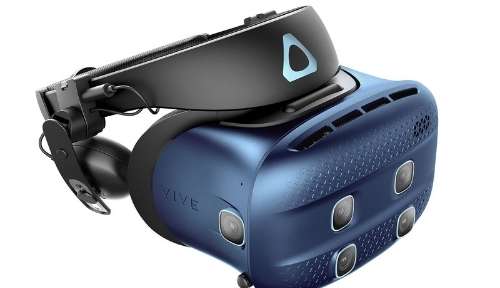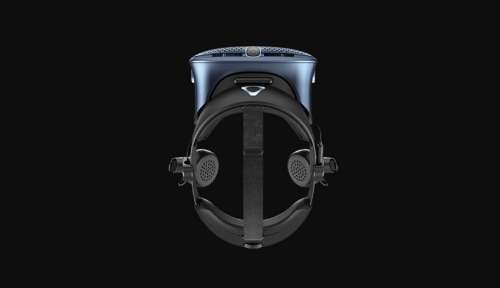
A Texas jury yesterday has awarded ZeniMax, parent company of Bethesda and iD Software $500 million dollars after finding that Oculus and founder Palmer Luckey had breached a non-disclosure agreement, as well as infringed on ZeniMax’s copyright. The jury did find against allegations that Oculus stole ZeniMax’s trade secrets and as a result the ultimate final ruling was significantly lower than the sought damages of $4 Billion.
The original case was brought against Oculus and parent company Facebook, as well as founder Palmer Luckey, former CEO Brendan Iribe and CTO and major industry figure John Carmack. The trial stated in January, involving ZeniMax’s relationship with Oculus throughout the Rift’s development, as well as the recruitment by Luckey of Carmack and other senior ZeniMax engineers and the aborted. The relationship between Oculus, ZeniMax and Oculus’ ultimate buyer is unique and convoluted, and many elements of which came up in the trial.
There were seven main charges against Oculus, Facebook, Luckey Iribe and Carmack. Three of these charges were accepted by the jury, three rejected, and one was a special case.

List of Charges and Results of ZeniMax vs Oculus Legal Case
1. Breach of Contract:
ZeniMax claimed that both Luckey and Oculus had a non-disclosure agreement, a form of contract that was fairly evidently breached through the Kickstarter campaign and in other instances during ZeniMax’s negotiation with Oculus. Luckey argued, successfully, that there’re was an inexcusable delay by ZeniMax in asserting its rights in the contract. However the jury found that Oculus was a party to the non-disclosure agreement and was in breach, awarding damages of $200,000,000 against Oculus.
2. Common Law Misappropriation of Trade Secrets:
ZeniMax’s main argument and the base of their claims for damages was that parts of the technology Oculus used to make the rift, including technology worked on by John Carmack to offset the technological challenges of VR in the past. ZeniMax failed to prove to a jury that it was more likely than not that the claimed trade secrets were misappropriated.
3. Conversion:
This was a somewhat odd count only against John Carmack. It asserted that Carmack wrongly took ZeniMax documentation, as well as the entire source code for the iD Software game RAGE from 2011. The jury rejected claims that that the statute of limitations stopped the claim and found in favour of ZeniMax. However no damages specifically have been awarded, so it is not known what will happen to this.
4. Copyright Infringement:
ZeniMax claimed that all five defendants had used code that infringed on ZeniMax’s copyright. It is somewhat complicated to prove copyright infringement in computer software, as many elements of computer code are not able to be copyrighted. For this case, the AFC test, an analysis which breaks down computer programs into their constituent parts, filtering out code that isn’t protected by copyright and comparing ZeniMax’s programs to Oculus’ to see if there enough of a similarity. Dr David Dobkin, who undertook the test concluded that Oculus copied from ZeniMax, a conclusion the Jury agreed with in their own ruling. The jury awarded $50,000,000 in damages against Oculus, however Oculus argued the test was “invalid and unconstitutional” and as such when this ruling is inevitably appealed it may be on these grounds.
5. Tortious Interference with Contract:
This charge was only applied to Facebook, and ZeniMax argued that the non-disclosure agreement was wrongfully interfered with when Facebook decided to buy Oculus. The jury disagreed, although whether this was due to whether it was because Facebook did not interfere with the contract or whether there was no damages caused is not known.
6. Trademark Infringement and False Designation:
One of the major cases against Oculus, Iribe and Luckey, ZeniMax argued that Oculus used ZeniMax’s trademarks without its consent. In related charge, there was also a claim of “false designation” which is the commercial use of a trademark that could cause confusion or misrepresents the origin of the product. This relates to, among other things the use of the adapted VR version of Doom 3: BFG Edition in Oculus’ Kickstarter page and pitch video. The jury found that Oculus and Irible intentionally used ZeniMax’s trademarks but that Luckey did not knowingly infringe on the same trademarks. All three defendants were liable for false designation and led to damages of $250 million being awarded against them: $50 million for Oculus and Luckey and $150 million to Iribe.
7. Unfair Competition:
Overall, this linked into the other three charges against Facebook and four against Oculus. ZeniMax claimed that all of the other unlawful business practises were illegal acts that interfered with ZeniMax’s business. The “illegal” act in question could have any of the charges brought against them, but the Jury found that they did not engage in unlawful competition.
Playing Legal Games
The ultimate consequence of the jury’s decision probably won’t be known for a very long time, with the inevitable chains of appeals, countersuits and international cases that tend to be brought into being whenever technology cases end up hitting the courts. Both sides are claiming victory, another common trend in these cases. Oculus have claimed that since the jury found that they had not stolen any trade secrets, they won the main part of the case, despite having to pay damages. ZeniMax argue that since damages are being paid and the liability of Oculus et al has been proven, that they won. The more pressing matter will be whether ZeniMax can successfully file an injunction that would stop the sale of Oculus Rift headsets, on a temporary basis.
Were this to happen, it could be quite damaging to the virtual reality industry as a whole, not just Oculus.
What are your thoughts on this entire trial? Do you believe the ruling was fair? Do you think it has any implications for Virtual Reality as a whole? Post your thoughts in the comment section below.







